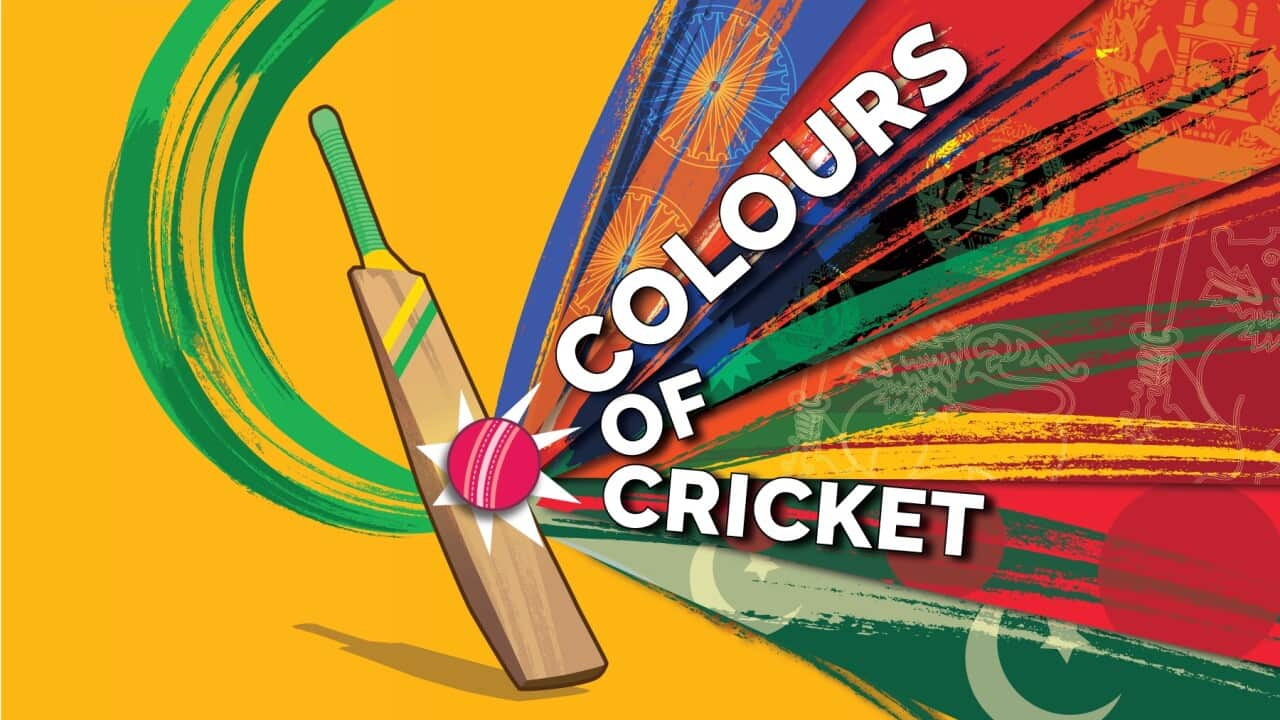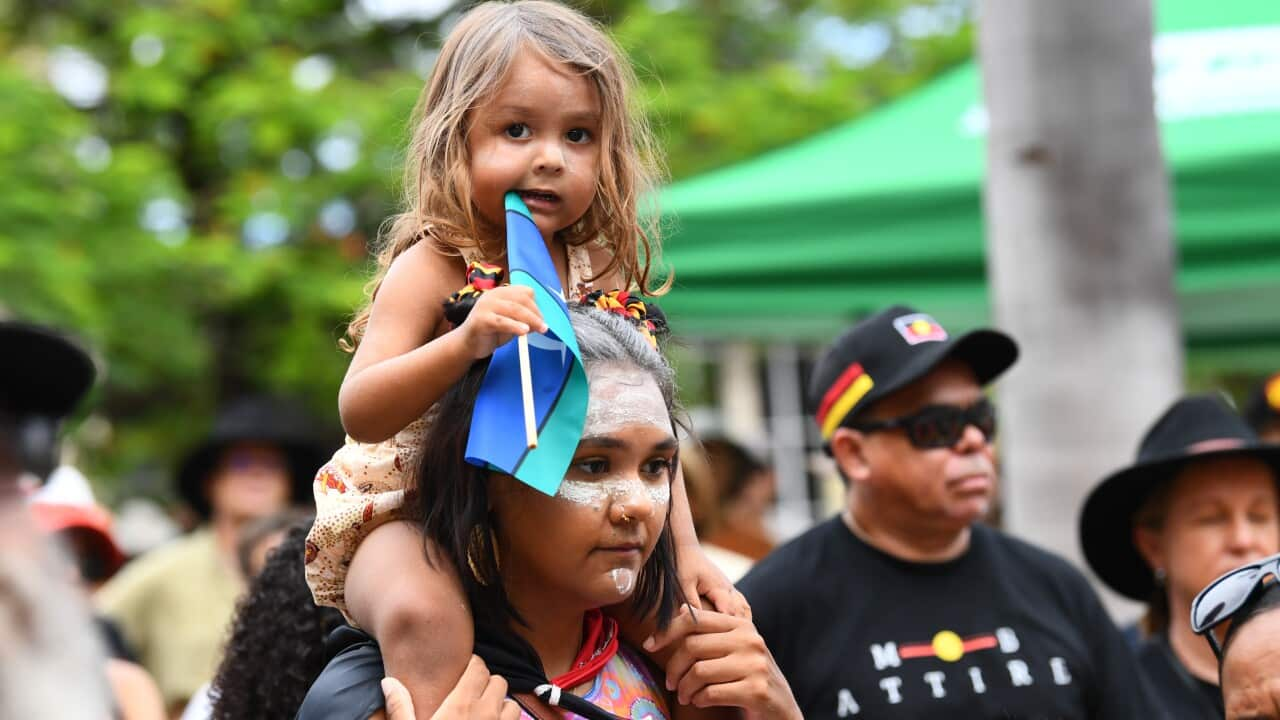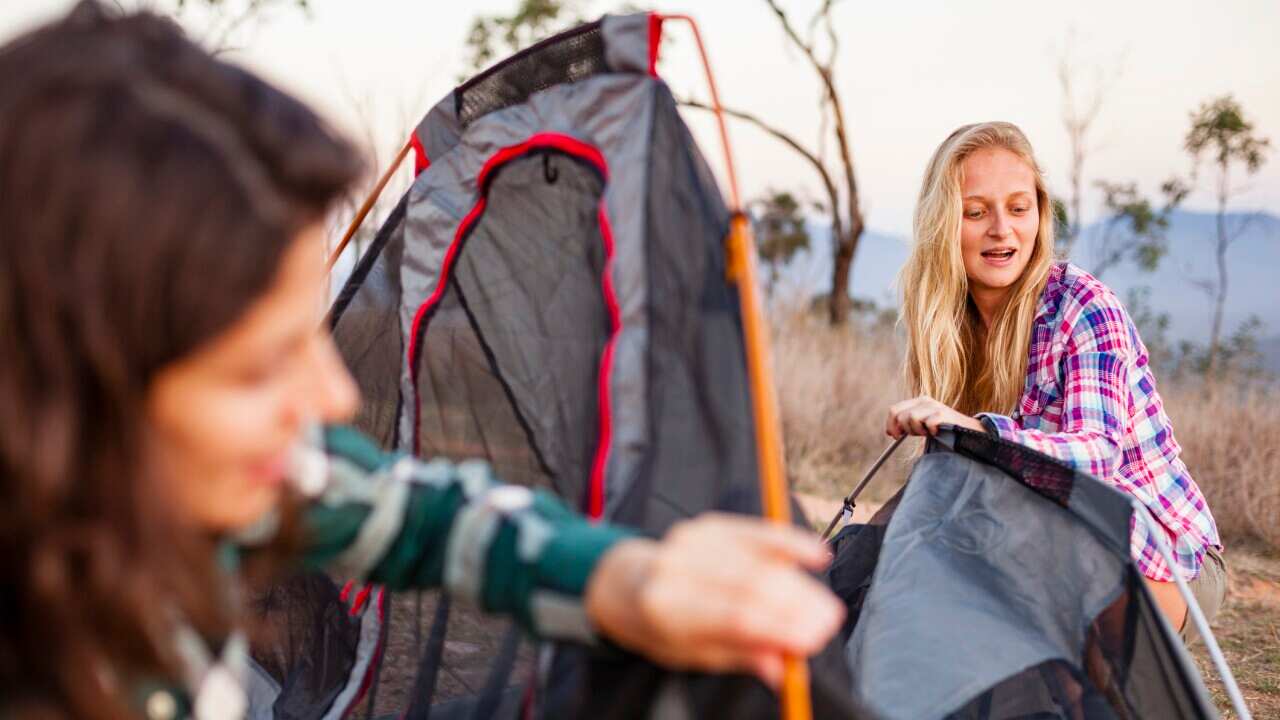Key learning points:
- Phrases to talk about joining a club
- Phrases to cheer for a team
- Enrolling kids to join sports clubs in their local community
This lesson suits upper-intermediate to advanced learners. After listening, scroll down and test your knowledge with our quiz.
Learning notes
Lesson language objective
Phrases to use when talking about community sport
Different ways to talk about joining a club
- I just completed the rego for my 5-year old son to join the cricket club.
- At this stage in the game, sessions will run every Saturday.
- Joining a club will give him a great head start in the sport!
- We could really do with some new players.
Different ways to cheer for a team
- Go (name of team)! Well done! You got this!
- Wow, this game is such a nailbiter!
- I never thought our team would make it this far. They've defied the odds!
- All the blood, sweat and tears were worth it.
- They're giving the other team a run for their money.
- Good call on the foul from the referee.
- Our team might not be the favourite, but they deserve to win.
Colloquial expressions:
At this stage in the game means at this point in time. At this stage in the game, he wants to retire.
To get a head start means to gain an advantage by starting early. He has a head start compared to the other kids in the team. He’s been playing tennis since he was 5 years old.
When you say you could really do with something, it means that you could benefit from it. I could really do with a good cup of coffee right.
To defy the odds means to do/win something that seems impossible. This expression comes from the language of gambling. She defied the odds. People didn’t think she would win.
We say You got this! to tell someone that you believe they can do what they are trying to do, particularly in sport.
When something requires that you put blood, sweat and tears in it, it’s a hard thing to do and it requires a lot of effort. She put in blood, sweat and tears into her new restaurant.
When something is worth it, it means that it is useful or enjoyable even if it took a lot of effort to achieve. He’s graduating from uni this month. All the hours he spent studying were worth it.
When you give someone a run for their money, it means you are doing very well and so you are making it difficult for some other person or team to win. My team gave theirs a run for their money.
Vocabulary:
Cricket – A game that is very popular in Australia played with a bat-and-ball between two teams of eleven players each.
Rego – Short for registration. Registration is when you join something officially, usually by completing a registration form.
Sports club – A group that comes together to play a sport
Session - A period of time planned for a particular activity
Spectator – Someone who watches a show, game or other event
Nailbiter – A very exciting situation in which it is not clear what is going to happen or who will win a game. It is so exciting that you start to bite your nails.
Referee – The official who watches a game closely to make sure that the players are following the rules
Call – A call in sports is a decision made by the referee during a game. We can also use it in every day language when we think someone else should make a decision as in ‘we can go to the beach or the park. Your call! I am happy to go to either and can’t decide’
Foul – A foul is something that a player should not do according to the rules of a game.
The favourite / frontrunner – in sports is the person or team who most people think will win
Ditto – means ‘the same again’ so we use it when we agree with what someone has just said.
Cultural information:
According to the , over eight million Australians use community sporting facilities annually.
Community sports include activities such as dancing, swimming, basketball, soccer, cricket and Australian rules football.
is a good resource tor those wanting their kids to join sports clubs in their local community. It can connect them with clubs and give them access to sporting schools and sports vouchers.
Transcript:
(Note: This is not a word-for-word transcript)
Hi! Welcome to the SBS Learn English podcast, where we help Australians to speak, understand and connect.
My name is Josipa, and like you, I want to know more about the English language so that I can play a full part in my community.
Today we’ll practise phrases that are useful when you are joining a community sport club and cheering on your favourite team.
In our first conversation today we have Allan, a father who wants his son to join a cricket club, and Maryanne, who today works at a local community sports club.
Allan:
Hi, I’ve just completed the rego for my 5-year old son to join the cricket club. It will be his first time playing the sport.
Maryanne:
You got it done just in time for this summer. At this stage in the game, sessions will run every Saturday, from 9:30 am-11:30am.
Allan:
My son’s really excited about being part of the club. It will give him a great head start in cricket!
Maryanne:
We’re looking forward to having him! We could really do with some new players. He’ll have a lot of fun and make a lot of new friends.
Cricket is Australia’s national summer sport. According to the National Cricket Census, around 1.77 million participated in cricket programs in 2021.
Wow! No wonder Allan wants his son to join a cricket club.
Now let’s take a closer look at the conversation between Allan and Maryanne.
Allan said,
I just completed the rego for my 5-year old son to join the cricket club.
Allan said he completed the rego for the club. Rego is short for registration, that is, to join something officially, usually by completing a form. The term can be used for any kind of registration, such as the registration of a motor vehicle which we call car rego.
Maryanne said,
At this stage in the game, sessions will run every Saturday.
‘At this stage in the game’ is an expression that means ‘right now’. It can be used in different situations such as ‘At this stage in the game, we’re unsure if we want to buy a house close to the city.’
Maryanne said that at this stage in the game, sessions for cricket will run every Saturday.
A session is a period of time planned to do a particular activity. This can relate to any activity, such as watching a movie or taking an art class. For example, ‘I went to a yoga session yesterday.’
Allan said,
It will give him a head start in cricket!
To ‘get a head start’ means to gain an advantage by starting early or before other people.
You can also get a head start in other things. For example, you could say, ’A good nursery gives my child a head start in life'.
Maryanne then replied,
We could really do with some new players.
In this scenario, Maryanne saying that they could really do with some new players means that the team could benefit from having new members.
The phrase ‘could really do with’ means to benefit. Another example of using this phrase is ‘After a long day recording this episode, I could really do with a nice relaxing bath.’
If you’re not sporty or interested in joining a sports club to play yourself, you might still want to be a spectator. A spectator is someone who watches a show, game or other event.
In our second conversation today, Allan and Maryanne are now two spectators watching a local sports club competition.
Maryanne: (to players) Go Strikers! Well done, boys! You got this! (to Allan) Wow, this game is such a nailbiter! I never thought our team would make it this far. They've certainly defied the odds! It’s great to see!
Allan: Yes, all the blood, sweat and tears were worth it. They're really giving the other team a run for their money. Maryanne: Good call on the foul from the referee too. At first, I didn't think he noticed it.
Allan: Ditto. Oh, I hope we get to the finals! Our team might not be the favourite, but they deserve to win.
Lot's of phrases to go through. Let’s do it one at the time.
First we have Maryanne,
You got this!
‘You got this!’ is an expression used to let someone know that you believe they can achieve what they’ve set out to do.
So, whenever you feel like that a person next to you could use some encouragement, meaning they need more confidence to do something, you could give them a tap on the shoulder and say, 'You've got this!'.
Maryanne said,
Wow, this game is such a nailbiter!
A nailbiter is a very exciting situation or a game in which it is not clear what is going to happen or who will win.
Maryanne also said,
I never thought our team would make it this far. They've certainly defied the odds!
To defy the odds means to do something that seems impossible. For example, ‘I thought that she wasn’t the best singer in school, but she defied the odds and won the competition.’
Allan replied,
Yes, all the blood, sweat and tears were worth it.
When something requires that you put blood, sweat and tears in it, it’s a hard thing to do and it requires a lot of effort. For example, ‘He put in a lot of blood, sweat and tears into his career and it was worth it.’
When something is ‘worth it’ it means that it is useful or enjoyable even if it took a lot of effort to achieve it. We could say, for example, ‘It was hard work moving to a new country, but she says it was all worth it.’
Allan also said,
They're giving the other team a run for their money.
If you give someone a run for their money it means that you are playing so well that you’re making it difficult for someone to win. For example, ‘He’s new to the sport, but he’s giving the other players a run for their money.’
Maryanne then said,
Good call on the foul from the referee too.
She meant that it was good that the referee noticed the foul.
A foul is something that a player should not do according to the rules of a game.
The referee is the official who watches the game closely to make sure that the players are following the rules. He or she decides if something that a player did follows the rules or not. This is called ‘making a call’. So, a referee makes calls, that is, decisions in the game if there are problems that need to be resolved.
Maryanne thought that the referee made a good call on the foul.
Allan agreed and said,
Ditto.
Ditto means ‘the same again’ so we use it when we agree with what someone has just said.
Our team might not be the favourite, but they deserve to win.
In sports, when a player or a team is the favourite, it means that most people think they will win. we could also say that they are the frontrunner.
Did you know that more than eight million Australians are involved in community sports every year?
My guest today is the mum of one of those eight million Australians - Maridel Martinez-Andanar. Her eldest son is part of a soccer club.
Welcome Maridel,
Maridel:
Hi, Josipa. Do you know that there are currently over 2 million people in Australia playing soccer? it’s almost as popular as swimming with kids. O over 1.194 million kids play it on a regular basis! My son, who is now 15, has been playing soccer since he was nine.
Josipa:
That’s great! What made you decide to get your son involved in community sports?
Maridel:
He’s always been athletic, but I wanted him to get a head start in soccer. It has helped him to not only become more physically active, but also be a team player. It’s been great so far.
Josipa:
What should parents know when it comes to registering their kids in community sport?
Maridel:
Annual fees are part of joining clubs, but there are ways that children can still participate in community sport without spending a lot of money.
. Sporting Schools is a government initiative that helps to promote children’s participation in sports by giving them and their families opportunities to play community sport.
There are also sports vouchers available every year that children in every state can access. I know in Victoria, the program is called the . In New South Wales, it’s called the .
Josipa:
Ah, I wasn’t aware of that! Thank you for the information, Maridel!
Maridel:
No worries, Josipa.
A big thank you to our educational consultant Professor Lynda Yates, our guest Maridel Martinez-Andanar, Winmas Yu, and Paul Nicholson and Coni Laranjeira who voiced the characters of Allan and Maryanne.














